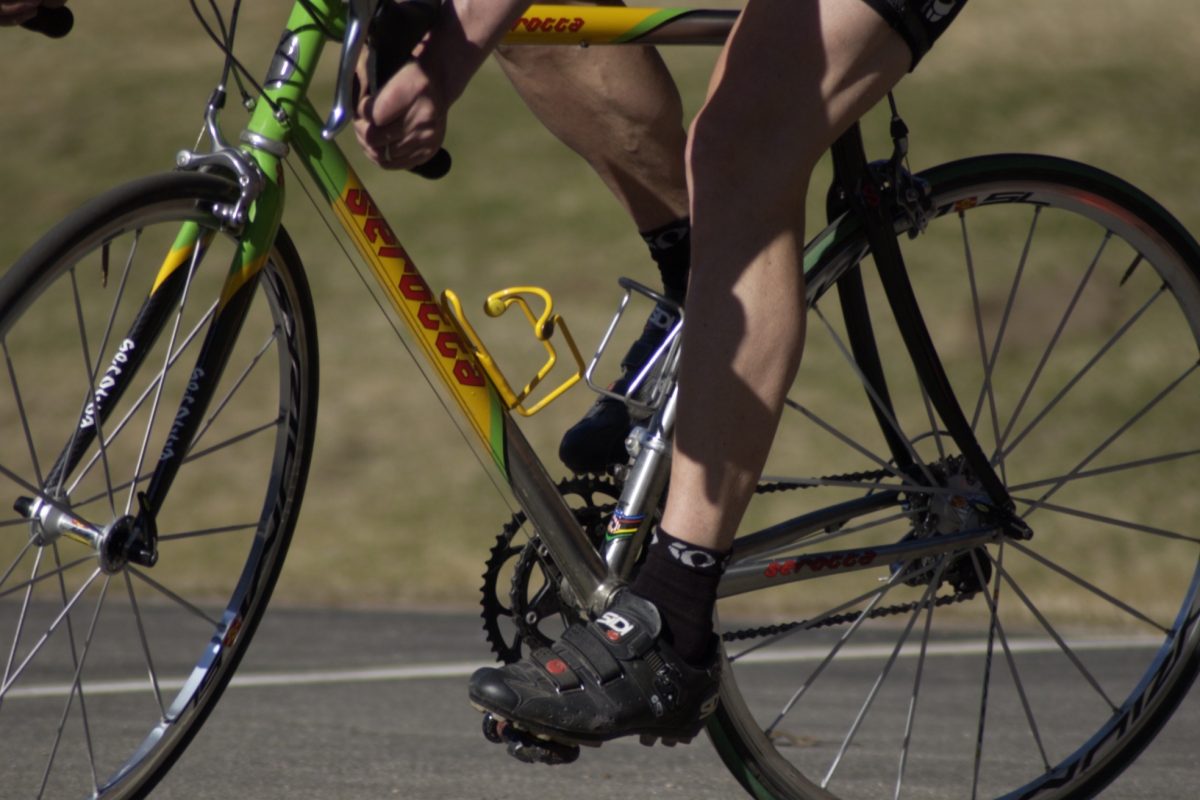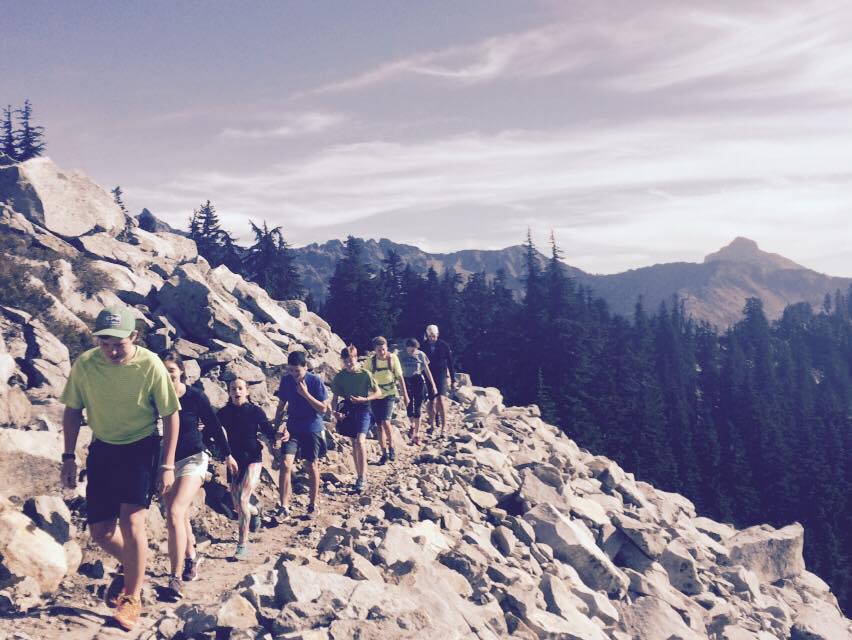
You said you wanted to ski it as a 15km not a 10km, did your strategy work?
I paced myself better than I ever had today. I went out conservatively and just kept getting faster and faster.
How was the course?
The tracks held up very well. The manmade snow is a little more dense. As time went on, I think it did slow down a bit.
Can you talk through race today
I went out conservatively because in the past I’ve been having trouble closing out a 15-km race. I’ve always raced it like it was 10 kilometers and my time would slip in the last few kilometers.
Bill Koch won bronze in 1982 in Oslo, where were you?
I was about two years old at the time so hard to say where I was.
Last week won 30-km mass start at U23 championships, you’re Nor Am champ, so you’re knocking down goals
It was a goal of mine to win the Nor Am. But my primary goal this season was to win gold at the U23. After that I sat down with my coach Trond (Nystad) who asked me what else I was going to do with the season. For me, I had hit my goals and was able to go into this race relaxed. This was the best race of my career.
You are diabetic?
I was diagnosed in September, of 2000. I was alerted to it when I was training with the U.S. Ski Team and my blood tests showed it. So I went to a doctor. I was told my elite athletic career was not going to be able to continue. But I set out to prove that it wasn’t true — I wasn’t going to go out that easily. I think I’ve shown that you can accomplish things even with this disease. It took a while to figure out the factors going into a race, but I have it now. It’s what I have to do so I don’t think about it any other terms than that. You get used to it. I spend about five minutes a day dealing with the disease, so it’s not that bad. I’ve progressed drastically since my diagnosis, but I’m skiing at a level far beyond I had hoped to be skiing, so it hasn’t held me back at all.
Have you had to make adjustments in training or competition, diet, etc.?
As far as training, no I haven’t made any adjustments — same with racing. I’ve had very big adjustments in diet. Any type of glucose raises my blood sugar, so I have to learn very quickly how many carbohydrates are in each meal so I can take the appropriate amount of insulin. I’m in a constantly changing environment — time zones, schedules, altitude, so I’ve had to become very good at that. I think about everything I put into my body because I have to make the adjustments for it. I avoid simply carbohydrates. I don’t drink any sugar unless I’m in a race situation and I need simple carbohydrates. I eat natural foods, fruit, I don’t tend to drink fruit juice. I stay away from refined sugar.
Did you feel better after starting to treat yourself?
Obviously when your blood sugar is twice what it should be, you feel off. When I started to treat myself I felt better right away. I knew that if I was able to treat myself properly my results would improve, and they did.
Do you get support from your family?
It’s great to have my brother (Justin) in the sport with me. He’s been progressing just as I have and I think we’ll be together in the sport for a long time. Everytime you have a family member with you, and we’re rooming together, it helps you.
Have you met Bill Koch
I’ve talked to Bill Koch on the phone before. He didn’t tell me anything specific. He called me before the Olympics last year to wish me luck. He just told me to stay relaxed and treat it like any other race, which I did.
What did gain from Olympics
The Olympics is the bigtest sporting event on earth, so when I got 15th place it taught me I could compete with anyone in the world. So when I started this race today, I started with a lot more confidence.
What was your strategy in the U23 race last week
In the under 23 race, it was a 9 lap race on a 3.3 kilometer course (30-km). On the first lap I felt the pace was slow. So I made the decision to take the lead. Sometimes taking the lead in a mass start race isn’t a good decision because like in bike racing you're breaking the wind, and I was hesitant to do it. But on the biggest hill on the course I decide to make a break and see who would come with me. But no one came with me. I looked back, saw I had about a 30 meter lead, and figured I might as well keep going. A kilometer later the lead was 50 meters and every lap I put 10-20 seconds on the field. I think it shook up a lot of nations.
Do you have a sense the U.S. athletes are second class citizens on the circuit?
Certainly they don’t take us as seriously, but they don’t show us any less support. The other countries want us to be strong so the sport can grow. If you’re best result is 30th, you’re not going to be taken seriously.
Do you remember a race where you first felt you could be a contender in this sport?
Way back when I was 15 I won the J2 championship in (cross country) freestyle. I had never even been in a race at that level and in my first race I was able to win, so I had a feeling I would do well. (Junior Olympics in Rumford, ME)
Anyone else in family an athlete?
I have only one sibling, my brother. My father participates in bike and ski racing but at a recreational level. (Don Freeman, carpenter, Shaker Village, NH; mother Barbara is social worker)
What do you think about your sport on TV?
Cross country ski racing is extremely exciting on television. It used to be on television in the U.S. on OLN, but they cut it back this year. I watch it here all the time and it can be very exciting. And if it's exciting to viewers here, it can be exciting in the USA.
Do you have any sport role models?
Certainly Lance Armstrong comes to mind. He’s in an endurance sport as I am, and he’s also overcome a disease as I have, so he’s a good role model for me.
What are your plans for the rest of the season?
I have another race in two days, then I’ll get ready for the Holmenkollen in Oslo until I come home March 24.
Going from the under 23 to the worlds what kind of strategy or training did you need to do?
One of the keys to being successful is finding a way of training and racing which works for you and you don’t change it. This was a time trial situation and I was just racing the clock. I did everything I normally would have done.
How do you feel being just 22 and competing so well at worlds?
I’m 22 now and it shows I have a lot of promise and hopefully I can come on and win some medals in the future. I think 2006 is a reasonable goal for a medal for me.
How did you get into the sport?
I started skiing pretty much as soon as I could walk. I started racing with the Andover Outing Club when I was five. I raced the Bill Koch League, the youth ski program, until I was 12. At that point I started to go to junior qualifiers. I won in 1996 and again in 1997. I succeeded then in qualifying for World Juniors and took 28th when I was 17, my first year. When I was 19 I won my first national title on the Olympic course in Soldier Hollow and took 7th place in the Goodwill Games. Then I went to my first World Championships in Lahti in 2001 and then the Olympics last year.
How did training on the Olympic site helped you?
I moved to Park City in the summer of 2000. I decided not to continue school (freshman, Univ. of Vermont), but to train with the U.S. Ski Team development team. The Soldier Hollow course is unique because it’s high and it’s dry. The foreign racers are shocked by that combination. That was a good thing for me because I was ready and knew how to race there. I chose to go back last summer and it worked fine. We have a great strength training facility there and the U.S. Ski Team staff which supports me there. I will continue to train there in the summer and fall.



